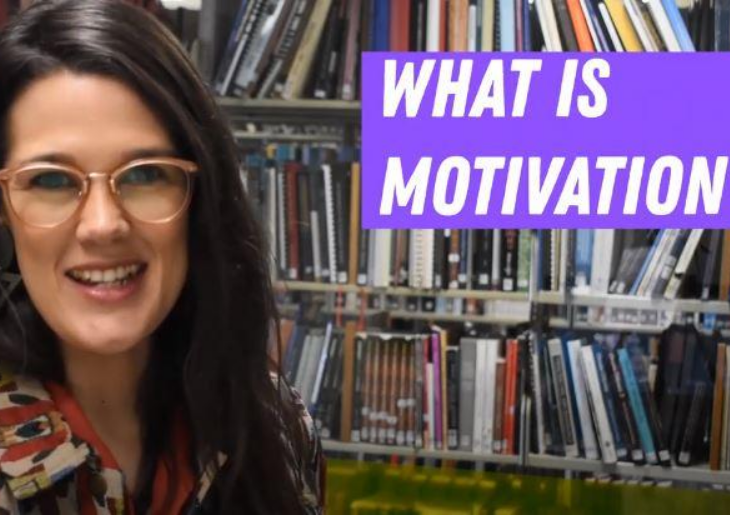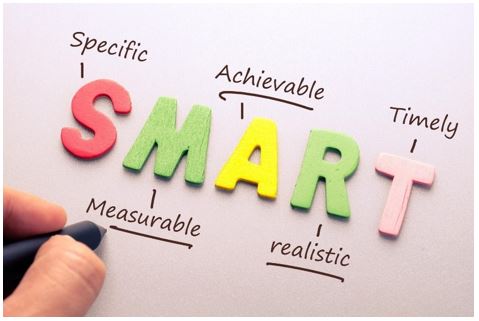
Last week we got down and dirty into why we may have had an unproductive first half of the year – turns out our brains aren’t very good at high-level analytical thinking, planning and creating during a crisis – and how we can deal with some of the guilt we might be carrying because of it. So now that we’ve acknowledged that guilt, we’ve named our feelings, checked out values, and given ourselves a bit of compassion, what can we do to up our motivation levels and properly get ourselves back on track?
What is motivation really?
But first, what is motivation? People have written scores of books on the subject – just check out the self-help section at your local Dymocks – and some savvy folks make very lucrative careers out of being motivational speakers.
Basically, motivation is the desire to put processes in motion that will help us achieve our goals. It’s generally accepted that there’s two types of motivation: ext==rinsic and intrinsic.
Extrinsic motivation is when we’re engaged in something to get a reward or to avoid punishment or negative consequences. You might feel extrinsically motivated to complete your assignment for the reward of a HD, or you might go to the dentist to avoid the consequences of having your teeth rot out of your head.

Intrinsic motivation, then, is what compels us to engage in activities for their own sake. These are things we find personally satisfying and where the behaviour itself is the reward. This might be studying a subject because you find it genuinely fascinating or running a marathon because it makes you feel a sense of personal accomplishment and pride. Intrinsic motivation tends to make us more successful, which makes sense. If we enjoy what we’re doing, or it makes us feel good about ourselves, we’re going to do a better job of it, right?

This combination of internal and external forces drives our behaviours, but that doesn’t mean that it’s easy to harness. Motivation can still seem like a strange and mythic beast that we need to tame in order to get anything done. There’s a lot of misconceptions about motivation and where it comes from, so before we get into some techniques for becoming more motivated, lets dispel some motivation myths.
What it isn’t – Breaking Some Motivation Myths
‘Inspiration’
Some of you may be familiar with the mythological Ancient Greek figures the Muses, the nine goddesses of inspiration. The Greeks believed that the desire to create existed outside of themselves and, instead, they would call on the Muses to gift them with creative inspiration.

Unfortunately, the muses don’t exist. ‘Inspiration’ is flighty. Once in a while we might be fortunate enough to have inspiration strike us like lightening, but that’s rare. And, when it does happen, it’s usually because we’ve put in some work first.
Motivation doesn’t come from inspiration. Motivation comes from doing. It’s the same thing as motion and inertia, right? You can’t expect a boulder to start moving from a stationary position – that’s just not how physics works. But getting that boulder to start moving is hard. As the laws of inertia tell us, objects resist changes to velocity, which means they resist movement, just like many of us feel resistance to the idea of starting to do something. But then momentum builds, and momentum allows that initial effort to turn into something much bigger. Soon that boulder is rolling.
Motivation is the same. Getting started is hard and sometimes it even requires some force, but once we get moving, we gain momentum. Basically, action leads action. In his memoir, On Writing, Stephen King writes, “Amateurs sit and wait for inspiration, the rest of us just get up and go to work.” To me, that pretty much sums it up.
‘Willpower’
A close cousin of the myth of inspiration is the problem of willpower. Willpower, really, is our ability to regulate ourselves and manage our impulses, emotions, and behaviours. It’s what allows us to resist short-term temptations in order to meet long-term goals.
We all have willpower and we’re all capable of executing it. The problem is that we often believe that willpower, much like inspiration, exists externally to us as something we don’t control. It’s easy to dismiss attempting difficult things by blaming a lack of willpower – if only I had more willpower I could eat better, drink less, spend more wisely.
But, just like our boulder, willpower is something we have to put effort into. If we want to make it stronger, we have to train it. We do this by trying to avoid temptations – say the temptation to watch YouTube instead of completing a reading – and setting up routines and plans that will allow us to succeed.

Say you want to run a 5k, but feel you lack the willpower to start. Setting up a routine to head out for a run every second day at 4pm is a really good start. Then, setting up a plan for what you’ll do if anything comes disrupts you – say it starts raining or you get home late from work – will help you stay on track. Just like when we start exercising, we’re probably going to feel some initial discomfort when we start training our willpower. But each time you engage in that activity, your willpower will grow, and it won’t just grow in relation to that specific activity either. A study out of Macquarie University showed that when participants increased their willpower with physical exercise, it led to increased willpower in other areas of their lives.
Motivation Hacks
Goal setting
Something that really helps with motivation is having a big picture plan and using that to set tangible goals. I’ve talked about goal setting before, and that’s because it’s genuinely important and super helpful.
We need to have goals that are specific, measurable, achievable, relevant, and time-bound – in other words, they should be SMART. It also helps if they’re linked to what gives us our intrinsic motivation – whatever that thing is that burns inside us. Chances are the next case study you need to write doesn’t feel connected to anything particularly intrinsic. However, it probably is tied to a larger intrinsic goal, for example, graduating university, starting a career in your field, or contributing something to your community. If you can tie your daily goals to those big-picture goals – into your personal sense of value and accomplishment – you can kind of trick yourself into becoming more intrinsically motivated.

Dr Gareth Furber and I have been working on some resources designed to help you up your productivity and performance and the first in the series is all about goal setting. I highly recommend checking it out to learn more about how to set yourself SMART goals.
In fact, the evening after filming that module with Gareth, I made myself a goal list. I thought about the reasons why I wasn’t feeling productive and where my sense of guilt was coming from and realised that I wasn’t writing because I didn’t feel motivated, and – really – I wasn’t even giving myself the chance to start feeling motivated. So, I broke down my big goal of completing my manuscript into some SMART goals.
For the last two weeks, I’ve been getting up an hour earlier in the morning to write. At first it was hard – I’m not a morning person – but now that I have some momentum, and I have clear goals, I’m starting to feel it. When my alarm goes off and it still dark outside and the birds are just starting to chirp, I’m finding it easier to get up instead of hitting snooze – that’s willpower building! I’m starting to actually look forward to that quiet hour with my coffee at my desk and, as I start to see trickles of words appear on the page every day, I’m feeling myself become more and more motivated to continue.
The Rule of Three
But having goals doesn’t work if we have too many of them. Why? Because sometimes if we don’t complete our to-do list or achieve everything we set out to in a day we feel and that can lead to a dip in motivation.
Instead, focus on the rule of three. What three tasks do you most want to do in your day? Listing just three helps us close the gap between what we plan to do and what we actually do, and once that gap is reduced, we eliminate the guilt or disappointment we might feel for not getting everything done.
It also means when you tick off those three items, you should celebrate your success. Motivation is linked to a sense of accomplishment. If we put our energy into positivity – into what we did do instead of what we didn’t do – we’ll see positive outcomes.

Freewriting
Sometimes the reason we don’t feel ‘inspired’ is because we’re overwhelmed and put too much pressure on ourselves to get something right straight away which means we find it difficult to start. But the blank page is the enemy of motivation. Who likes staring at the blinking cursor on your screen, tormenting you amongst that vast and terrifying emptiness?
Overcoming our mental resistance – that feeling of inertia – often means just starting, even if we don’t feel ready. Freewriting is the process of writing without thinking too much about it. It’s about shutting up our inner critic – the you that sits on your shoulder and tells you that your sentences are poorly constructed and your ideas aren’t good enough and you need to do more research because you’re a fraud, you idiot. When we do this, we can become immersed in our thoughts and access knowledge and ideas we often didn’t even know we had. If we’re lucky, we might even enter a state of flow. This is a magical state of mind when our focus is totally and absolutely clear, so much so that we start to lose a sense of time.

Freewriting is easy. All you need to do is sit down and start hammering at those keys and don’t stop. Make sure you set yourself a topic –something you’re working on for an essay, for example – or give yourself a prompt. Even just ten minutes of this can be enough to get us motivated to tackle that topic more deeply. Remember, it’s far easier to fix something that’s not perfect than it is to build something perfect from scratch.
That’s it for today. I hope there’s something in there that can help you feel more motivated. Remember to check out the Goal Setting video that Gareth and I produced and keep an eye out for an upcoming series on procrastination – something that is also very closely connected to motivation.
Resources
Goal-Setting Module: https://flo.flinders.edu.au/mod/page/view.php?id=2912724
Health and Wellbeing Blog: Goal-setting: https://blogs.flinders.edu.au/student-health-and-well-being/2020/08/10/goal-setting-and-why-it-is-important/
American Psychological Association (2012). What You Need to Know about Willpower: The Psychological Science of Self-Control. Retrieved from https://www.apa.org/topics/willpower.pdf
Oaten, M., & Cheng, K. (2006). Longitudinal gains in self-regulation from physical exercise. British Journal of Health Psychology, 11, 717-733.

